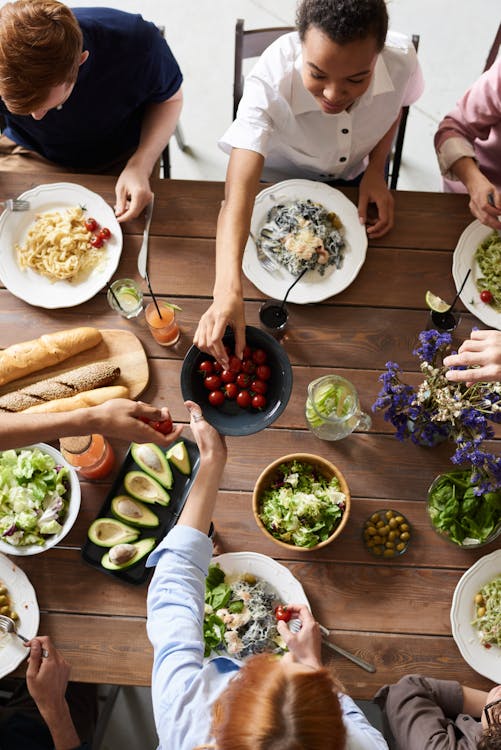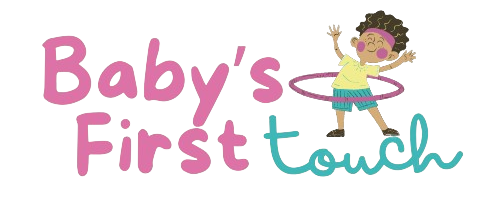Table of Contents
- What Exactly is a Values-Based Family Legacy?
- Identifying Your Core Family Values: The Starting Point
- Weaving Values into the Fabric of Daily Life: Living Your Legacy
- Rituals, Traditions, and Connection: Anchoring Your Values
- Navigating Challenges and Conflicts Through a Values Lens
- Documenting and Sharing Your Legacy: Making it Last
- Practical Tips for Building Your Family’s Values Legacy
- Conclusion: The Enduring Power of a Values-Based Legacy
Building a Family Legacy: More Than Just Heirlooms, It’s About Passing Down Values
What comes to mind when you hear the term “family legacy”? For many, it conjures images of antique furniture passed down through generations, maybe a cherished family recipe, or perhaps even significant financial wealth. These are all valid parts of a legacy, tangible pieces of history connecting us to our past. But what if the most profound, most impactful legacy we can build isn’t something you can hold in your hands, but something held deep within the heart and mind?
We’re talking about passing down values – the core beliefs, principles, and ethical guidelines that shape who we are, how we interact with the world, and the decisions we make. Building a legacy of values is about intentionally cultivating a family culture rooted in integrity, kindness, resilience, generosity, or whatever principles *your* family holds dear. It’s about leaving behind not just possessions, but a moral compass for future generations.
In a world that often feels fast-paced and focused on the superficial, anchoring your family in deeply held values provides stability, purpose, and a strong sense of identity. It’s a gift that keeps on giving, influencing choices and shaping character long after we’re gone. Ready to explore how you can intentionally build this kind of enduring legacy? Let’s dive in.

What Exactly is a Values-Based Family Legacy?
Think of your family legacy as the invisible architecture that supports your family’s identity across time. While financial inheritance provides resources, a values-based legacy provides *meaning*. It’s the collection of stories, beliefs, ethics, and behaviors that define what it means to be part of your family.
Beyond Material Wealth: The True Inheritance
Financial advisors often talk about transferring wealth, but the most successful multi-generational families understand that wealth preservation is often linked to shared values. Families that prioritize communication, responsibility, philanthropy, and hard work are often better equipped to manage tangible assets wisely. However, the true power lies in the values themselves, regardless of financial standing.
A legacy built on values might include:
- A deep commitment to honesty and integrity.
- A tradition of community service and helping others.
- An emphasis on lifelong learning and curiosity.
- A strong work ethic balanced with prioritizing family time.
- Resilience in the face of adversity.
- Practices of gratitude and appreciation.
- Respect for diversity and inclusivity.
These aren’t line items on a balance sheet, but they are invaluable assets that equip family members to lead fulfilling lives and contribute positively to the world.
Why It Matters More Than Ever
In today’s complex world, children and adults alike are bombarded with conflicting messages. Social media, news cycles, and peer pressure can create confusion about what truly matters. A strong foundation of family values acts as an anchor, providing:
- A Moral Compass: Helping individuals navigate difficult choices and ethical dilemmas.
- Sense of Belonging: Creating a shared identity and strengthening family bonds.
- Resilience: Offering principles to lean on during challenging times.
- Purpose: Guiding actions and contributing to a sense of meaning in life.
- Positive Social Impact: Equipping individuals to be responsible and compassionate citizens.
Building this legacy isn’t about creating perfect people, but about providing a framework for growth, understanding, and connection.
Identifying Your Core Family Values: The Starting Point
You can’t intentionally pass down values if you haven’t clearly identified them first. This requires conscious reflection, both individually and as a family unit. What principles truly guide your decisions and define your family’s character?
Questions for Reflection (Individually or as a Couple)
Set aside some time to think about these questions:
- What qualities do you admire most in others?
- What principles did your own parents or guardians emphasize? Which resonate with you? Which don’t?
- Think about moments you felt proudest of yourself or your family – what values were being expressed?
- Conversely, what situations cause you frustration or anger? What underlying value is being violated?
- If someone described your family, what words would you want them to use?
- What are the non-negotiable rules or principles in your home?
- What do you want your children (or future generations) to stand for?
- What kind of impact do you want your family to have on the world?
Discuss your answers openly. You might find a lot of alignment, but also some differences. This discussion itself is valuable in clarifying what matters most.
Involving the Whole Family (Age-Appropriately)
Don’t just dictate values; involve your children in the conversation. This fosters buy-in and helps them internalize the principles.
- Young Children: Talk about simple concepts like being kind, telling the truth, sharing, and helping. Use stories and role-playing. Ask questions like, “What does it mean to be a good friend?” or “Why is it important to help clean up?”
- Older Children & Teens: Engage in deeper discussions. Ask for their opinions on what values are important for your family. Discuss real-life scenarios or ethical dilemmas presented in movies or the news. Encourage them to articulate *why* certain values matter.
Consider Creating a Family Mission Statement
Once you’ve identified 3-5 core values, consider crystallizing them into a Family Mission Statement. This doesn’t need to be a formal corporate document, but rather a simple declaration of what your family stands for and strives towards.
It could be a sentence or a short paragraph. Examples:
- “The Smith Family values kindness, honesty, and lifelong learning. We strive to support each other, try our best, and make a positive difference in our community.”
- “Our family believes in: Respect for everyone, Responsibility for our actions, Resilience in challenges, and Rejoicing in everyday moments.”
Write it down, make it visible (perhaps on the fridge or a bulletin board), and refer to it occasionally. This serves as a constant, gentle reminder of your shared commitments.

Weaving Values into the Fabric of Daily Life: Living Your Legacy
Identifying values is step one. The real work – and the real impact – comes from living those values authentically every single day. Children, especially, learn more from what they *see* than what they’re *told*. Your actions are the most powerful curriculum.
Lead by Example: Actions Speak Louder Than Words
This is the cornerstone of passing down values. If you preach honesty but tell white lies, or emphasize kindness but gossip about neighbours, your words will ring hollow.
- Model Integrity: Admit when you make a mistake. Apologize sincerely. Follow through on promises. Be truthful, even when it’s inconvenient.
- Show Respect: Treat everyone – your partner, children, service workers, strangers – with courtesy and consideration. Listen actively when others speak.
- Demonstrate Resilience: Talk openly (age-appropriately) about challenges you face and how you’re coping. Frame setbacks as opportunities for growth.
- Practice Generosity: Share your time, resources, or skills. Involve the family in charitable activities or acts of kindness.
- Embrace Hard Work: Show dedication in your own work (whether paid or unpaid). Talk about the satisfaction of effort and perseverance.
Leveraging Everyday Moments: Teachable Opportunities
Values education isn’t confined to formal discussions. Everyday life is rich with opportunities:
- Dinner Table Conversations: Move beyond “How was your day?” Ask questions like, “Did you see anyone being particularly kind today?” or “What was challenging today, and how did you handle it?” Share your own experiences related to family values.
- Media Consumption: Discuss the behaviours and choices of characters in books, movies, or TV shows. “Was that an honest thing to do?” “How could they have shown more courage?”
- Chores and Responsibilities: Frame chores not just as tasks, but as contributing to the family team, learning responsibility, and taking pride in your environment.
- Handling Mistakes: When a child (or adult!) messes up, focus on accountability and learning rather than just punishment. Link it back to values like honesty and responsibility. “Telling the truth was hard, but I’m proud you did. Now let’s figure out how to make things right.”
- Allowance and Money Management: Use conversations about money to teach values like responsibility, delayed gratification, generosity (sharing/donating), and planning.
The Power of Storytelling: Connecting Past, Present, and Future
Humans are wired for stories. Sharing family history and personal narratives is a powerful way to illustrate and transmit values.
- Family History: Tell stories about grandparents, great-grandparents, or other relatives. Focus on examples of their character – their resilience during hard times, acts of kindness, dedication to a cause, or commitment to family. These stories create a sense of connection and shared identity.
- Personal Stories: Share your own experiences, including both successes and failures. Talk about times you lived up to your values and times you struggled. Authenticity makes the lessons more relatable. Frame them explicitly: “That experience taught me the importance of perseverance,” or “Looking back, I wish I had been more honest in that situation.”
- Create a ‘Values Narrative’: Consciously weave your core family values into the stories you tell. Highlight instances where family members demonstrated courage, compassion, integrity, etc.
Storytelling makes abstract values concrete and memorable. It shows how these principles have guided your family through generations and provides inspiration for the future.

Rituals, Traditions, and Connection: Anchoring Your Values
Family traditions and rituals are more than just fun activities; they are powerful mechanisms for reinforcing values and strengthening family bonds. They create predictable moments of connection where values can be implicitly and explicitly shared.
The Importance of Consistent Rituals
Rituals provide structure, comfort, and a sense of belonging. They can be simple or elaborate, daily, weekly, or annual:
- Daily Connections: Saying grace before meals (gratitude), a specific bedtime routine involving stories or shared reflections (connection, calm), a family hug before leaving for the day (love, security).
- Weekly Touchpoints: A regular family game night (fun, cooperation, good sportsmanship), Sunday dinner together (connection, communication), a weekly ‘check-in’ where everyone shares highs and lows (support, empathy).
- Annual Celebrations: Holiday traditions (generosity, gratitude, faith, family history), birthday rituals that honour the individual (celebration, love), family vacations (adventure, togetherness, creating memories).
- Unique Family Traditions: Maybe it’s volunteering together on Martin Luther King Jr. Day (community service), a yearly camping trip (nature appreciation, resilience), writing gratitude notes at Thanksgiving (appreciation), or a special way you celebrate achievements (effort, perseverance).
How Rituals Reinforce Values
Think about the underlying values embedded in your traditions:
- Holiday gatherings often emphasize family connection, generosity, and gratitude.
- Volunteering traditions highlight compassion and community responsibility.
- Regular family meals foster communication and togetherness.
- Celebrations of milestones recognize effort and achievement.
Be intentional about linking rituals to your core values. Talk about *why* you do certain things: “We volunteer at the soup kitchen because our family believes in helping others,” or “We have family dinner together because connecting and listening to each other is important to us.”
Adapting and Creating New Traditions
Traditions aren’t set in stone. As families evolve, traditions may need to adapt or new ones may emerge. Involve family members in deciding how to celebrate or connect. Maybe a traditional holiday meal needs tweaking to accommodate new dietary needs or family structures. Perhaps your family wants to start a new tradition focused on environmental stewardship or learning a new skill together.
The key is the intentionality and the shared meaning behind the activity. These repeated, value-laden experiences become powerful threads in the tapestry of your family legacy.
Navigating Challenges and Conflicts Through a Values Lens
Life isn’t always smooth sailing, and families inevitably face challenges, disagreements, and difficult times. Having clearly defined values can provide a crucial framework for navigating these situations constructively.
Values as a Guidepost in Disagreements
When conflicts arise (between partners, parents and children, or siblings), referring back to shared core values can help de-personalize the issue and focus on principles.
- If ‘respect’ is a core value, discussions should focus on communicating respectfully, even when disagreeing.
- If ‘honesty’ is key, emphasize the importance of expressing true feelings and perspectives without blame.
- If ‘responsibility’ is central, focus on acknowledging one’s role in the conflict and finding solutions together.
Using values as a reference point can elevate the conversation beyond winning or losing to finding solutions aligned with what the family stands for.
Teaching Resilience, Forgiveness, and Repair
Challenges are opportunities to model and teach crucial life skills grounded in values:
- Resilience: When facing setbacks (job loss, illness, disappointment), talk about how your values (e.g., perseverance, faith, family support) are helping you cope. Show children that it’s okay to struggle, but important to keep trying and support each other.
- Forgiveness: Model forgiveness, both seeking it and granting it. Talk about how holding onto anger can be harmful and how forgiveness (while not necessarily forgetting or excusing behaviour) aligns with values like compassion and moving forward.
- Relationship Repair: After a conflict, demonstrate how to mend relationships. This involves apologizing sincerely (taking responsibility), listening to the other person’s perspective (empathy, respect), and making amends where necessary.
Seeing adults navigate difficulties using a value-based approach is incredibly instructive for younger generations.
When Values Seem to Clash
Sometimes, different deeply held values might seem to conflict (e.g., honesty vs. kindness in delivering difficult feedback). Or, as children grow, their personal values might diverge somewhat from the family’s core values. These situations require careful handling:
- Open Dialogue: Create a safe space for discussing these tensions without judgment.
- Seek Understanding: Try to understand the reasoning behind differing perspectives.
- Prioritize Core Principles: Revisit the most fundamental family values. Can a solution be found that honours the most important ones?
- Respect Individuality: Acknowledge that older children and adults need autonomy. The goal isn’t conformity, but providing a strong foundation. Allow space for individual interpretation and application of values, as long as core ethical lines aren’t crossed.
Navigating these complexities thoughtfully is part of building a mature and resilient family legacy.
Documenting and Sharing Your Legacy: Making it Last
While living your values is paramount, intentionally documenting and sharing the ‘why’ behind them can add depth and longevity to your legacy.
Beyond Oral Tradition: Tangible Reminders
Oral storytelling is powerful, but memories fade. Consider creating tangible records:
- Family Journals or Letters: Write down family stories, significant life lessons, and expressions of your values. Letters written to children or grandchildren (perhaps to be opened at a certain age) can be deeply meaningful.
- Photo Albums with Context: Don’t just collect pictures; caption them with notes about the values being lived in those moments (e.g., “Grandpa teaching Aunt Sue to fish – patience and passing down skills,” “Our family volunteering day – teamwork and community spirit”).
- Video or Audio Recordings: Interview older family members about their lives, experiences, and the principles that guided them. Record family gatherings where stories are shared.
- Family Tree and History: Documenting your lineage provides context. Add notes about ancestors’ known character traits or significant life events that demonstrate values.
The Ethical Will: Sharing Your Heart
Distinct from a legal will that distributes assets, an ethical will (also known as a ‘legacy letter’) communicates your values, beliefs, hopes, and life lessons to future generations. It’s not legally binding but can be an incredibly precious gift.
An ethical will might include:
- Your core personal and family values and why they matter to you.
- Important life lessons you’ve learned.
- Your hopes and dreams for your descendants.
- Expressions of love and gratitude.
- Stories that illustrate key principles.
- Forgiveness sought or granted.
Writing an ethical will is a profound process of reflection and can provide clarity for both the writer and the recipients.
Ensuring Continuity: Open Conversations
Don’t wait until it’s too late. Talk openly with your family about the concept of legacy and the values you hope to pass down. Share your ethical will or other documented thoughts while you are still around to discuss them. Encourage younger generations to think about their own values and how they connect to the family’s heritage.
These conversations ensure that the legacy isn’t just a historical record but a living, breathing part of the family’s ongoing identity.

Practical Tips for Building Your Family’s Values Legacy
Feeling inspired but perhaps a little overwhelmed? Building a values-based legacy is a marathon, not a sprint. Here are some actionable takeaways:
- Be Intentional: Don’t leave it to chance. Consciously decide that building a legacy of values is a priority.
- Identify Your Core Values: Engage in reflection and family discussions to pinpoint the 3-5 principles most important to you. Write them down.
- Lead by Example: Your actions are the most powerful teacher. Strive to live your values authentically every day.
- Talk About Values Regularly: Weave discussions about your core principles into everyday conversations, storytelling, and media consumption.
- Use Storytelling: Share family history and personal experiences that illustrate your values in action.
- Establish Meaningful Rituals: Create or maintain traditions that reinforce your values and strengthen family bonds.
- Involve Everyone: Engage all family members (age-appropriately) in identifying, understanding, and living the family values.
- Navigate Challenges Together: Use your values as a guidepost during difficult times and disagreements. Model resilience and forgiveness.
- Document Your Journey: Consider creating an ethical will, journaling, or annotated photo albums to preserve the ‘why’ behind your values.
- Be Patient and Persistent: Building a strong legacy takes time and consistent effort. There will be setbacks. Keep at it.
Conclusion: The Enduring Power of a Values-Based Legacy
Building a family legacy centered on values is one of the most meaningful and enduring gifts you can give to future generations. It goes far beyond material possessions, providing a foundation of character, purpose, and connection that can shape lives for the better.
By intentionally identifying, living, communicating, and celebrating your core family values, you create a rich inheritance of wisdom, integrity, and love. It’s about defining what truly matters to your family and ensuring those principles echo through time. This isn’t a task to be checked off a list, but an ongoing commitment woven into the fabric of your family life.
It’s never too late to start being more intentional about the legacy you’re building. Begin today by reflecting on your values, initiating conversations, and living with purpose. The ripples of your efforts will undoubtedly be felt for generations to come, creating a family story rich in meaning and strong in character. What will your family’s values legacy be?


